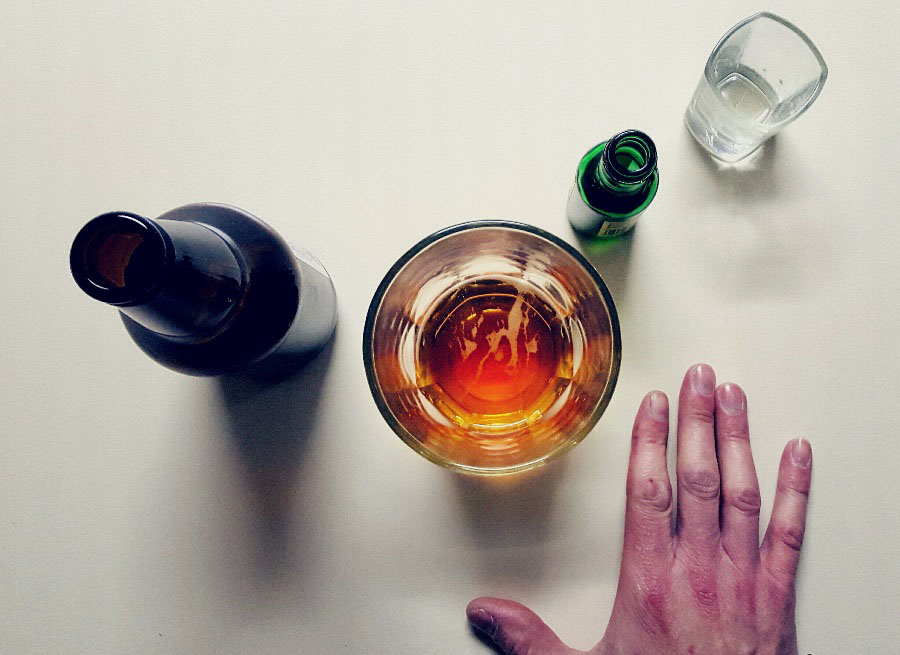Have you noticed that it takes more drinks than it used to for you to get that familiar effect of alcohol? Maybe you’ve started consuming far more than you used to, and your ability to “hold your liquor” is growing a bit each time you imbibe.
Sure, the idea that alcohol has less of an impact on you can seem like a benefit, but growing tolerance could be both dangerous and a warning sign of more serious issues ahead.
But what is alcohol tolerance, and how does it develop? Why does it pose such a health risk if you aren’t “feeling” the same level of impairment as you used to?
What Is Alcohol Tolerance?
Like any other tolerance, alcohol tolerance refers to your body’s decreased response to alcohol after repeated exposure.
Typically, alcohol tolerance occurs when drinking the same amount of alcohol no longer produces the same level of buzz or intoxication that it once did. Once you have developed alcohol tolerance, you’ll find that you need to consume increasingly larger amounts of alcohol to feel the same effects.
Tolerance doesn’t mean alcohol isn’t affecting your body. It’s your brain that has become more adapted to compensating for alcohol’s effects.
But your body is likely still being just as impacted, and your blood alcohol concentration (BAC) could be rising (and with it, the potential damage to your organs.)
What are the Different Types of Tolerance?
Functional Tolerance
Functional tolerance occurs when your brain adapts to compensate for the behavioral changes typically associated with alcohol consumption. This is why some individuals find that they can consume large amounts of alcohol without seeming to be “intoxicated”.
However, they usually feel the same effects, even if it isn’t apparent to others.
Metabolic Tolerance
A second type of alcohol tolerance is known as “metabolic tolerance”. This develops when your liver becomes more efficient at breaking down alcohol.
The liver produces increased amounts of enzymes responsible for alcohol metabolism, causing people to process alcohol more quickly (and feel fewer effects). This can cause individuals to drink more to get the same buzz they used to with fewer drinks.
Environmental/Learned Tolerance
The third type is known as environmental (or learned) tolerance. This type of alcohol tolerance occurs when individuals regularly consume alcohol in the same setting.
Research has shown that individuals drinking in familiar environments may experience less intoxication than when drinking the same amount elsewhere. In essence, their body has become “conditioned” to expect alcohol in certain situations, and will adapt to meet that need.
Why Do People Develop a Tolerance to Alcohol?
Like many tolerances and dependencies, alcohol tolerance involves many different, complex biological functions.
For alcohol, the brain chemistry and liver function of the individual begin to change as the pleasure chemical dopamine is released while drinking. The brain begins to reduce its natural levels of release and relies on alcohol consumption to make up the difference.
Drinking can also lead to changes in the brain’s receptor sensitivity and neurotransmitter functions. Your body’s communication pathways will begin to adapt to the constant presence of alcohol, and the impacts will lessen as the body grows used to it.
Are There Behavioral Factors?
While each case of alcohol tolerance is unique, there are some behavioral factors that can play a role. These can include drinking frequently, the amount you drink at any given time, and body type/biological sex.
Science has found that those who drink regularly (even if not heavily) can develop a tolerance much faster than occasional drinkers.
What are the Signs You May Be Building Up an Alcohol Tolerance?
You Need More Alcohol to Feel Effects
The most obvious sign of developing tolerance is requiring more drinks to achieve the same level of intoxication you previously experienced. If you need to drink multiple drinks to feel the effects, you’re likely experiencing a tolerance buildup.
You Begin Drinking More Frequently or Heavily
As the tolerance builds, many will unconsciously increase their drinking frequency or amount to make up for not feeling the effects. This can become a pattern that makes heavy drinking easy to overlook.
You Experienced Diminished Hangover Symptoms
Paradoxically, those who have built up a high alcohol tolerance may feel that they have fewer symptoms.
The lack of a hangover may be due to the body having adapted to processing large amounts of alcohol faster. This can create a false sense of security as the physical impacts of drinking are no longer that obvious.
What Are The Risks of Alcohol Intolerance?
As you can imagine, drinking more while feeling fewer effects can quickly lead to many negative consequences for your health and wellness.
Individuals with high tolerance often consume larger amounts of alcohol, which can lead to greater levels of organ damage over time. The liver will suffer the most damage, whether you feel intoxicated or not. In severe cases, ongoing drinking can lead to fatty liver disease, alcoholic hepatitis, and even cirrhosis.
Alcohol tolerance can also potentially increase your cancer risk, as alcohol is classified as a Group 1 carcinogen. The more alcohol consumed over time, the higher the risk of developing alcohol-related cancers, including liver, breast, and colorectal cancers.
High tolerance can mask the development of alcohol use disorder (AUD) by making excessive drinking seem manageable, as individuals don’t always feel the same response mechanisms that would otherwise slow them down.
Can Alcohol Tolerance Be Reversed?
The good news is that alcohol tolerance can be reversed through periods of abstinence. For most people, several weeks without drinking can significantly reduce tolerance levels. It’s always best to seek professional help and treatment for a safe reversal of alcohol tolerance.
Treatment typically includes medically supervised detox, counseling, and ongoing support to address all aspects of alcohol dependency or addiction. If you begin to see any of these symptoms in yourself or a loved one, it may be time to consider professional help:
- An inability to control how much or when you drink
- Increasing instances of drinking alone or in secret
- Experiencing cravings or feeling compelled to drink
- Neglecting usual responsibilities or relationships due to drinking
- Drinking to feel “normal” or cope with emotions
How Genesis House Can Help
At Genesis House, we know that recognizing alcohol tolerance and dependency can be difficult. For those in the midst of it, getting help can feel overwhelming.
That’s why we offer compassionate alcohol addiction programs designed to provide medically supervised withdrawal management in a safe, supportive environment. Our team of addiction specialists can help develop personalized treatment plans that help treat the physical and psychological aspects of alcohol dependence.
If you fear that your alcohol tolerance is a sign of a deeper issue, Genesis House also offers treatment for alcohol addiction, including evidence-based therapies, family support services, and aftercare planning.
If you’re concerned about alcohol tolerance or addiction, don’t wait. Contact Genesis House today for a confidential assessment and learn about the treatment options available to help you reclaim your health and your life.
FAQ
How Long Does It Take To Build A Tolerance To Alcohol?
The timeline can vary from person to person, depending on factors such as how often one drinks, the amount they consume, as well as genetics and body composition. Regular drinkers may find that they build a tolerance within weeks to months of consistent drinking. Those who drink more often may find that tolerance builds much faster.
Is High Alcohol Tolerance A Sign of Alcohol Addiction?
A high alcohol tolerance doesn’t automatically signal addiction, but it can be a warning sign. Tolerance is one of the diagnostic criteria for alcohol use disorder (AUD), along with other symptoms such as an inability to control drinking behaviors and withdrawal symptoms.
Can Alcohol Tolerance Be Dangerous?
Absolutely. Any tolerance to a substance that has the potential to impair your ability to function and your judgment can pose risks to yourself and others. Though your brain may tell you that you are “okay”, high tolerance can’t mask the actual impacts of high blood alcohol concentration (BAC) and other health impacts.
References
- https://wellness.huhs.harvard.edu/understanding-alcohol-tolerance
- https://www.utoledo.edu/studentaffairs/counseling/selfhelp/substanceuse/tolerance.html
- https://pmc.ncbi.nlm.nih.gov/articles/PMC8917511/
- https://www.recoveryohio.org/alcohol/tolerance/
- https://www.washburnhouse.com/addiction-recovery-blog/the-truth-about-alcohol-tolerance/
- https://www.studocu.com/en-gb/messages/question/5163145/distinguish-between-metabolic-and-functional-drug-tolerance
- https://www.bgsu.edu/recwell/wellness-connection/alcohol-education/tolerance.html
- https://www.mayoclinic.org/diseases-conditions/alcohol-use-disorder/symptoms-causes/syc-20369243
- https://www.samhsa.gov/find-help/helplines/national-helpline
- https://my.clevelandclinic.org/health/diseases/3909-alcoholism
- https://www.niaaa.nih.gov/publications/brochures-and-fact-sheets/understanding-alcohol-use-disorder






